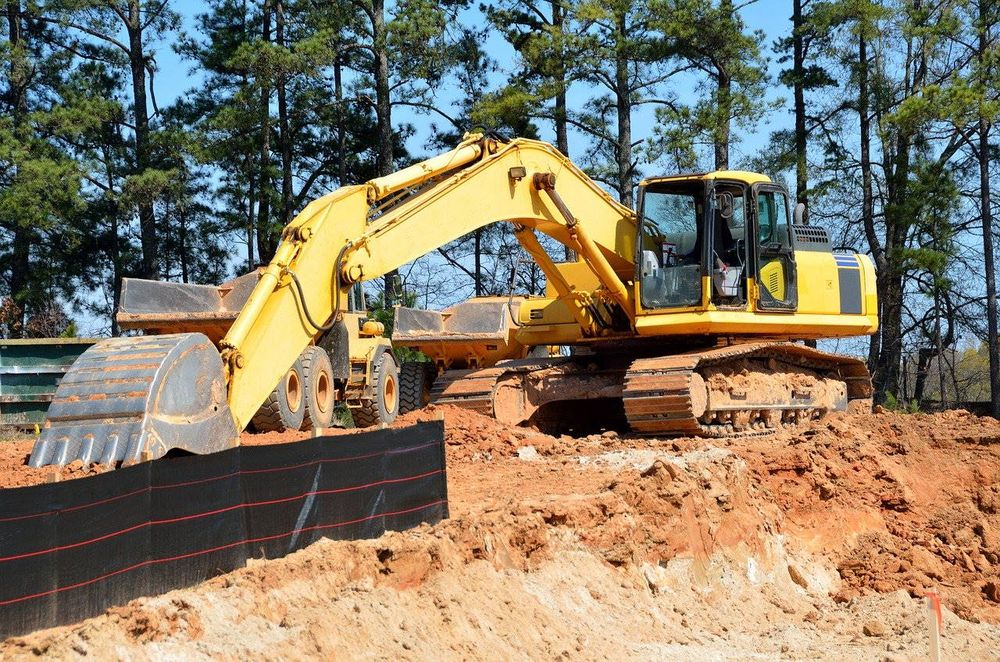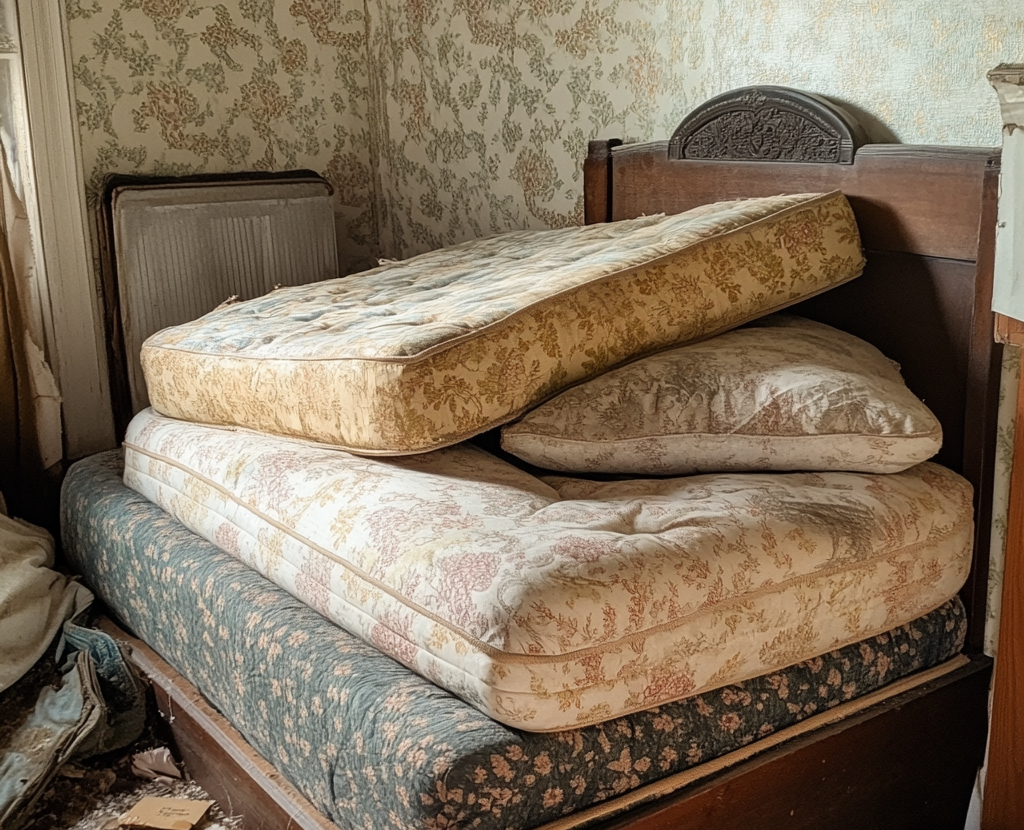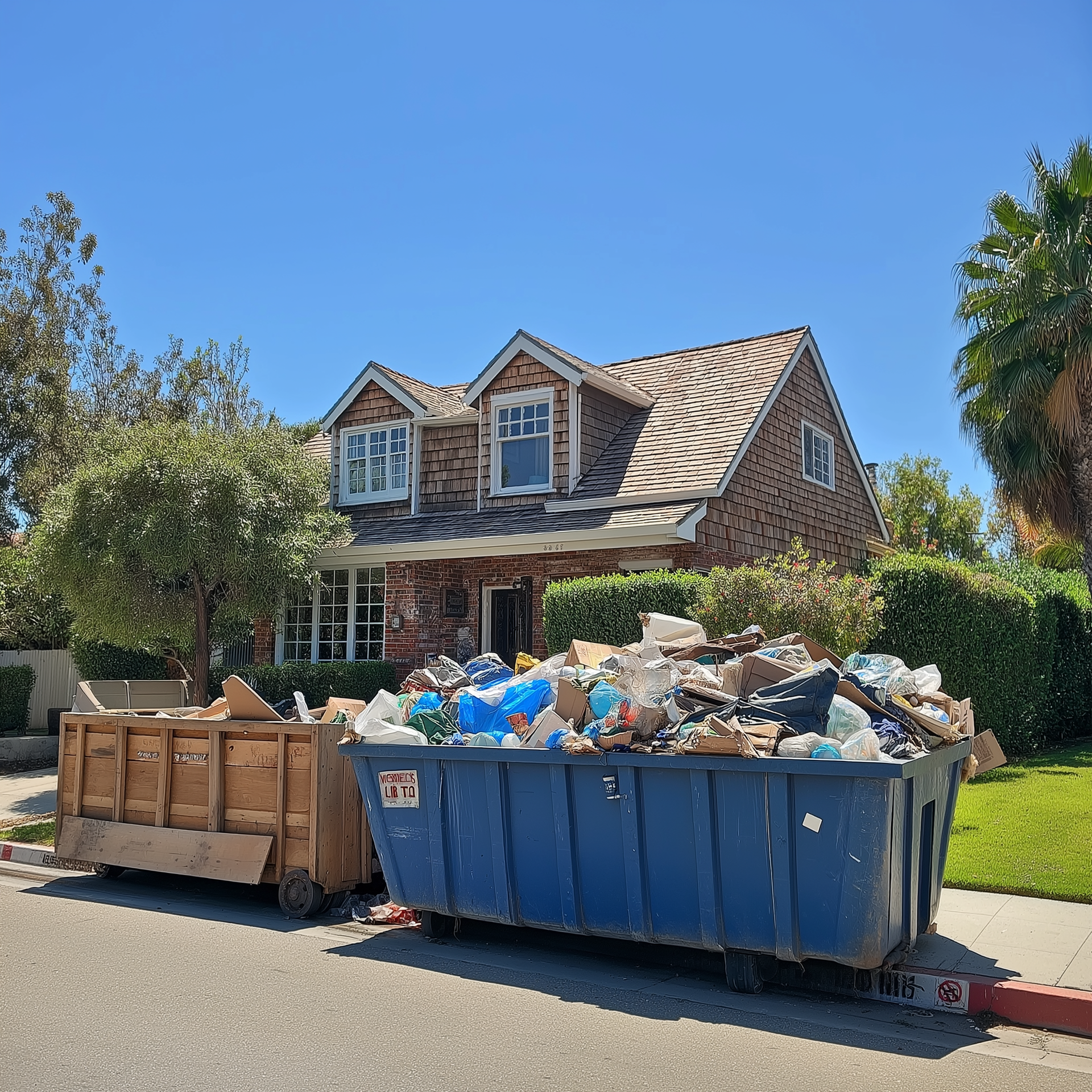Removing junk can feel like an insurmountable task, especially when it seems to have amassed over the years. Whether you’re cleaning out your garage, decluttering your home, or tackling a renovation project, the prospect of DIY junk removal can be daunting. However, with the right tips and strategies in place, you can turn this challenge into an adventure! In this comprehensive guide, we’ll explore everything you need to know about junk removal, ensuring a hassle-free cleanout experience.
The Importance of DIY Junk Removal
Why Remove Junk? Unpacking the Benefits
Removing unwanted items from your living space isn’t just about aesthetics; it's about creating a functional environment. A cluttered space can lead to increased stress levels and decreased productivity. Here’s why you should consider embarking on a DIY junk removal journey:
Enhanced Mental Clarity: A clean space fosters clear thinking. Increased Safety: Clutter can pose safety hazards in your home. More Space: Freeing up room makes your home feel larger and more inviting. Potential Monetary Gain: Selling or donating items is environmentally friendly and financially rewarding.
Setting Goals for Your Cleanout
Before diving headfirst into junk removal, it’s crucial to set clear goals for what you aim to achieve. Ask yourself:
- What areas of my home need decluttering? How much time do I realistically have for this project? Am I focusing on keeping any specific items?
Defining these aspects will guide you through your cleanout process effectively.
DIY Junk Removal: Tips for a Hassle-Free Cleanout
Gathering Your Supplies
Essential Tools for Effective Junk Removal
Before embarking on your cleanout adventure, make sure you have all the necessary supplies at hand:
- Trash Bags: For smaller items and debris. Boxes: Sturdy boxes are great for sorting keepers and donations. Markers: Label boxes clearly. Gloves: Protect your hands from sharp or dirty objects. Dolly or Hand Truck: Essential for moving heavier items safely.
Creating a Plan of Attack
Breaking Down Your Project Into Manageable Steps
It’s easy to get overwhelmed by a mountain of junk. Create a structured plan by breaking down your cleanout into smaller tasks:
Choose one area to tackle at a time (e.g., garage first). Set a timer (30-minute increments work wonders). Sort items into categories (keep, donate, recycle, trash).By chunking down the process, you’ll find it easier to stay focused and motivated.
Sorting Strategies that Work Wonders
The Four-Box Method Explained
One proven strategy for effective sorting is the four-box method:
Keep Donate Recycle TrashThis method simplifies decision-making as you categorize each item efficiently.
The Emotional Side of Decluttering
Understanding Attachment Issues with Belongings
It's common to develop emotional attachments to belongings; perhaps an old toy reminds you of childhood days or furniture pieces recall family gatherings. Understanding these emotions is vital as they may hinder decluttering efforts.

Tips to Overcome Emotional Attachments
Reminisce without holding onto items—take pictures instead! Reflect on how often you've used an item recently. Consider whether the item adds value to your life today.Realizing that memories don’t reside solely in physical objects can make letting go easier.

Tackling Specific Areas in Your Home
Garage Cleanout Strategies That Shine
Garages often become catch-all spaces filled with forgotten treasures and debris alike.
Steps for a Successful Garage Cleanout
Empty everything out into the driveway. Sweep out cobwebs and dust before putting anything back. Use shelving units to organize kept items better.Implementing these steps will transform your garage from cluttered chaos to organized order!
Decluttering Living Spaces Like a Pro
Living rooms often accumulate knick-knacks that serve little purpose anymore.
What To Do With Unwanted Furniture?
Sell online (Facebook Marketplace or Craigslist). Donate gently-used furniture to charities. Consider repurposing some pieces creatively!Giving new life to old furniture not only reduces waste but also adds character to your home!
Eco-Friendly Junk Disposal Practices
Recycling vs Landfill - Making Smart Choices
When discarding items, consider environmental implications.
1. Know What Can Be Recycled
Many household materials such junk removal services as paper, cardboard, and certain plastics can be recycled instead of going straight to landfills.
2. Donation Opportunities Abound
Many organizations welcome gently-used clothes and furniture; check local listings for drop-off centers near you!
3.Craigslist & Freecycle Networks
Consider listing usable items on platforms like Craigslist or Freecycle where others may benefit from them free of charge!
Safety Tips During Junk Removal
Staying Safe While Decluttering
Junk removal isn’t without risks—sharp objects and heavy lifting come into play!
1.Safety Gear is Key
Always wear gloves when handling debris; protective eyewear is also wise if dealing with glass or heavy-duty materials!
2.Lift Smartly
Use proper body mechanics when lifting heavy objects—bend at the knees rather than relying solely on back strength!
FAQs About DIY Junk Removal
1.What should I do if I find hazardous waste while cleaning out?
If hazardous materials junk pickup like paint or chemicals are discovered during cleanup, contact local waste management facilities regarding safe disposal methods—they usually provide guidance!
2.Is it worth hiring professional help instead?
Hiring professionals might be beneficial if large-scale cleanouts seem overwhelming—many offer full-service options that simplify labor-intensive processes!
3.Are there any tax benefits related donations?
Yes! Keep records of donations made throughout cleanup efforts—these records may entitle taxpayers eligible deductions under IRS regulations!

4.How long does an average decluttering session take?
Duration greatly varies based on size/condition of spaces involved yet expect anywhere from several hours up-to few days depending upon extent tackled!
5.Can children participate in declutter efforts?
Absolutely! Getting kids involved teaches valuable lessons around organization responsibility while also providing bonding experiences!
6.What happens after my junk has been removed?
Once all unwanted materials are cleared away—the focus shifts towards maintaining cleanliness/reorganizing remaining possessions so clutter doesn’t resurface again soon after initial effort made!
Conclusion
Embarking on a DIY junk removal journey can be both challenging and rewarding—creating space in our lives brings clarity while nonetheless freeing us mentally/emotionally! By following these simple tips outlined above—from gathering necessary tools down sorting strategies—you too can conquer clutter once-and-for-all! Remember—the key lies within developing manageable plans staying true intentions set forth alongside keeping eco-friendly practices mind throughout entire process ahead! Now go forth—to reclaim that space—and let adventure begin anew!